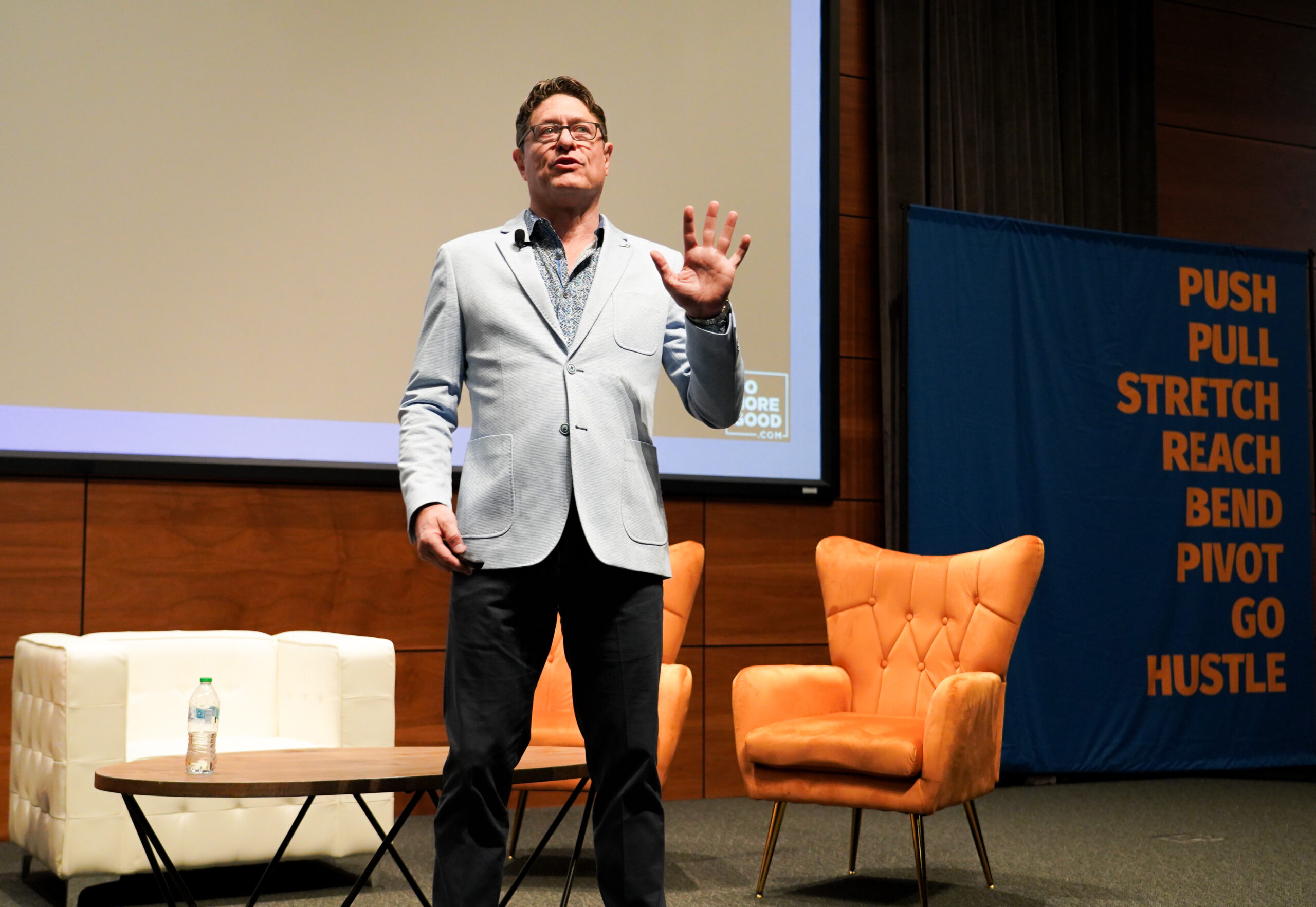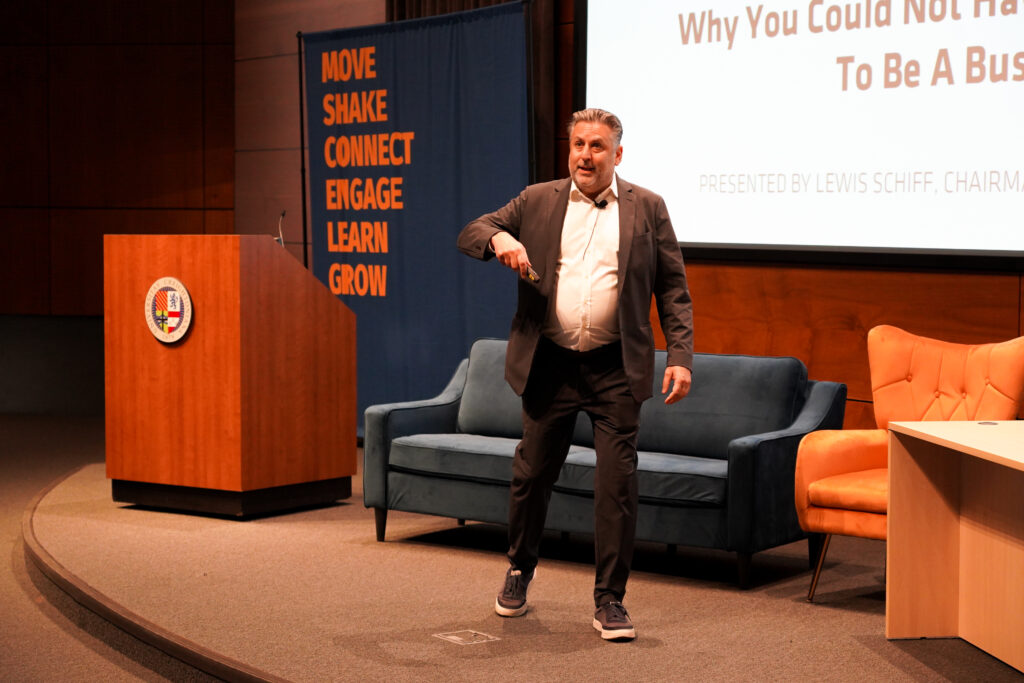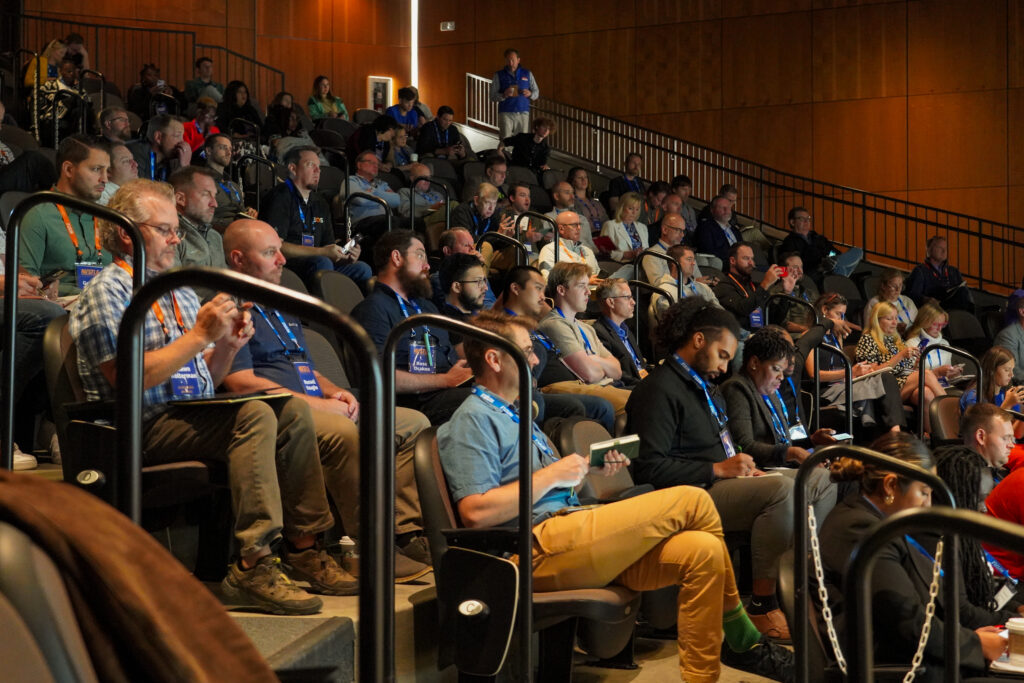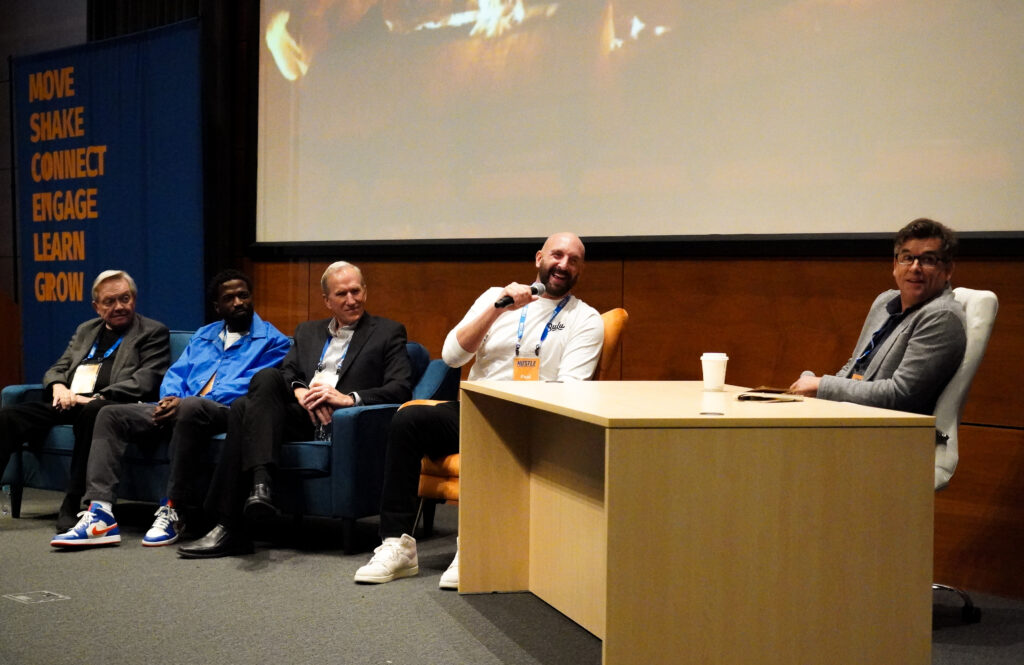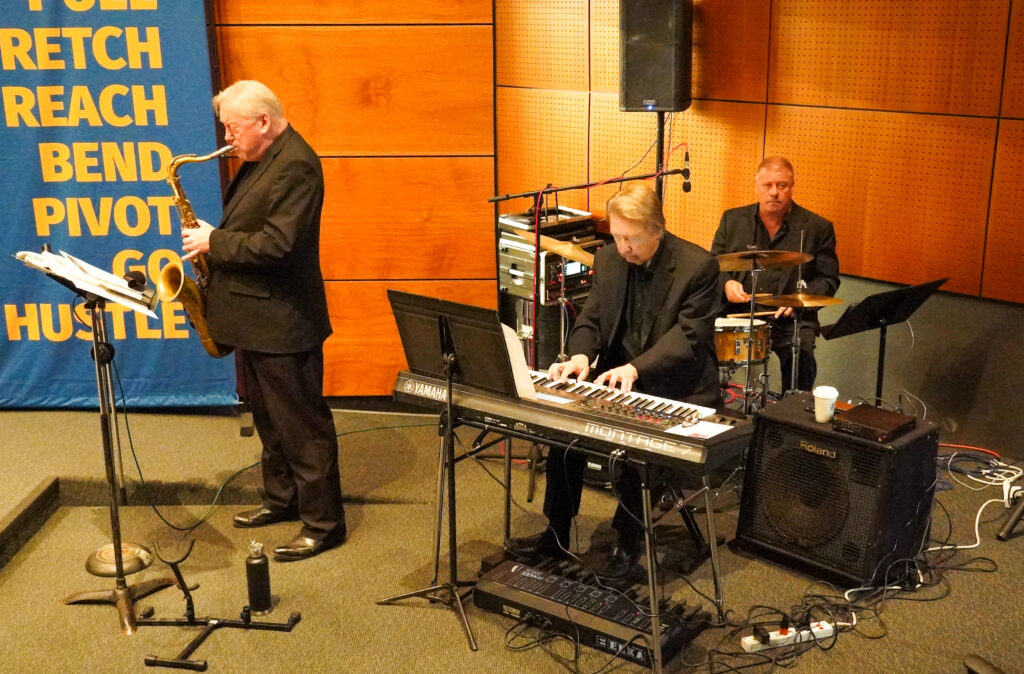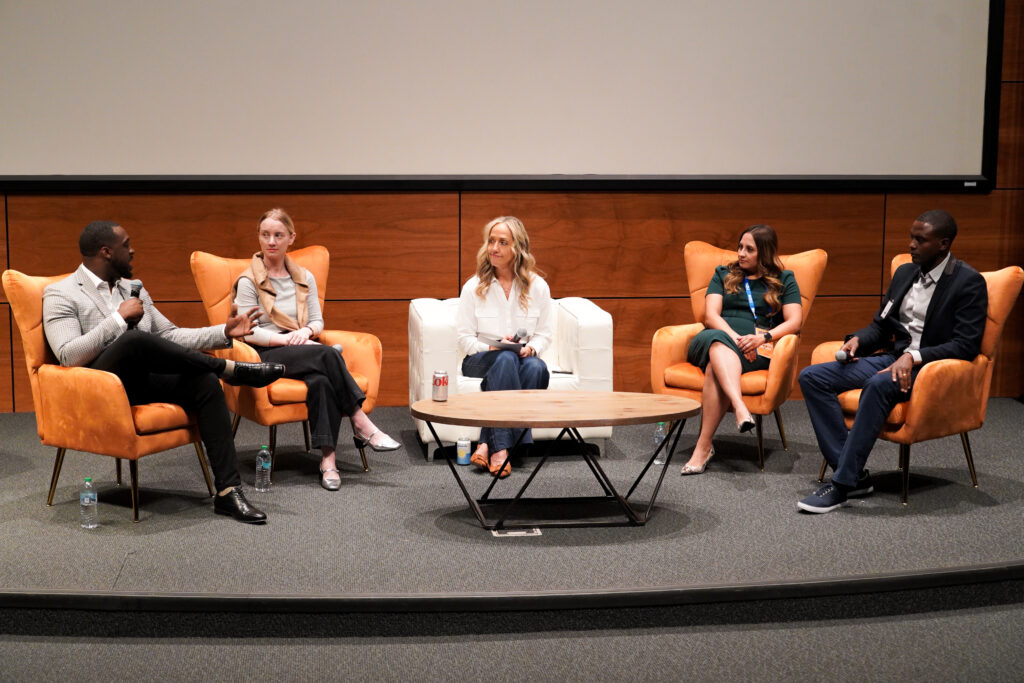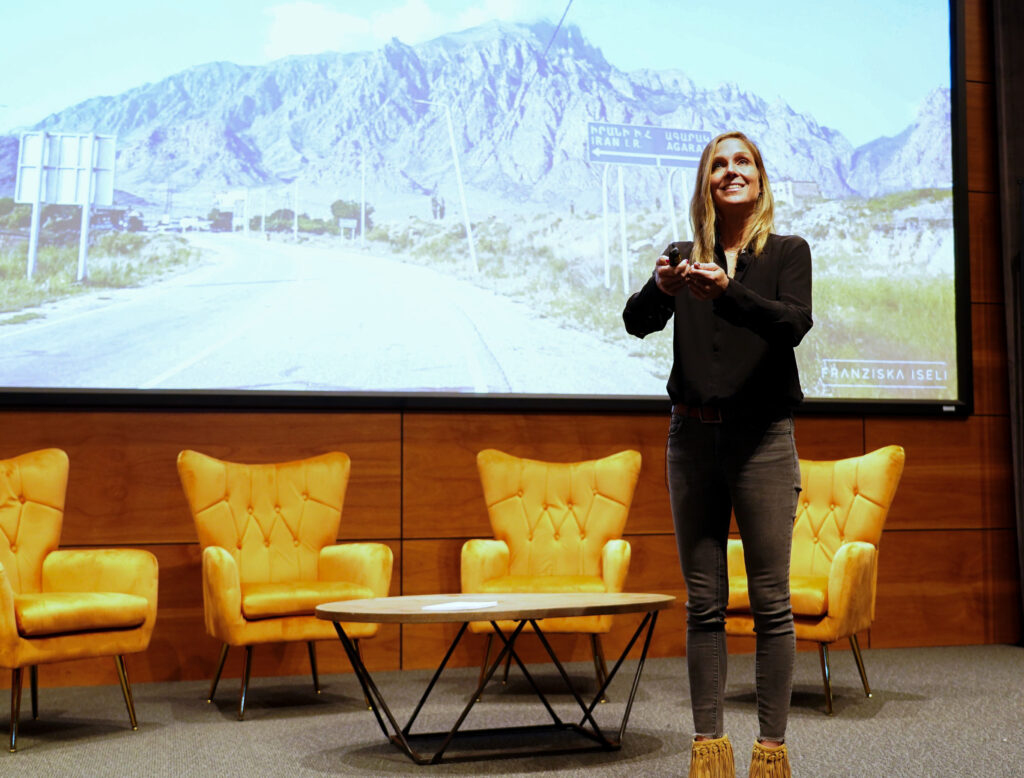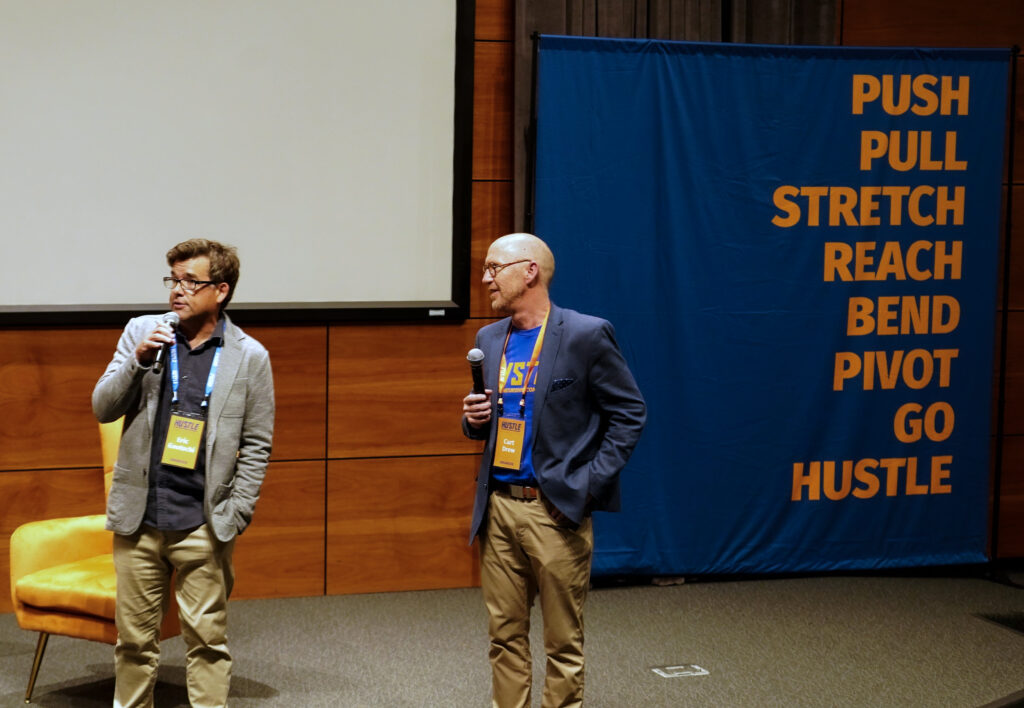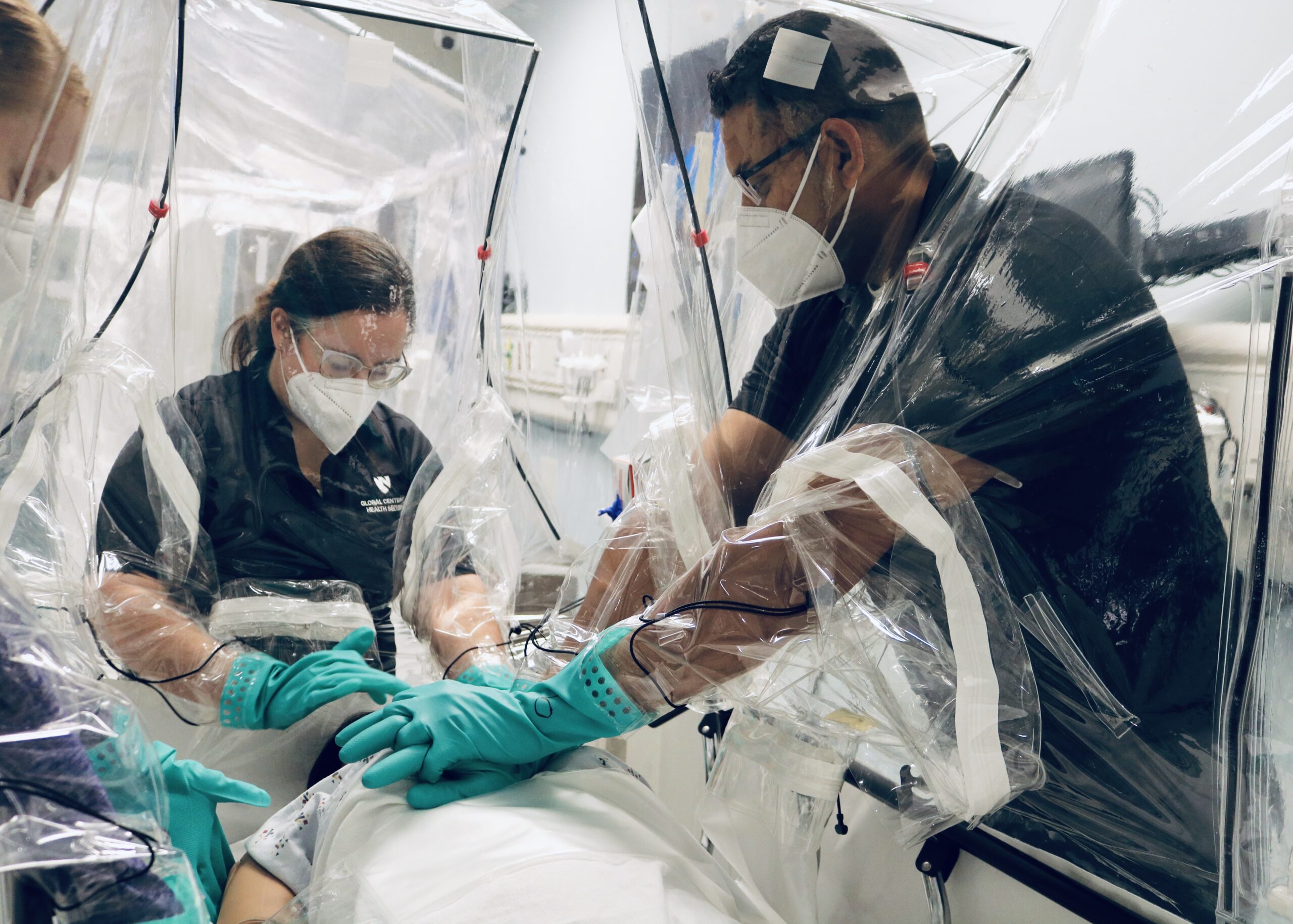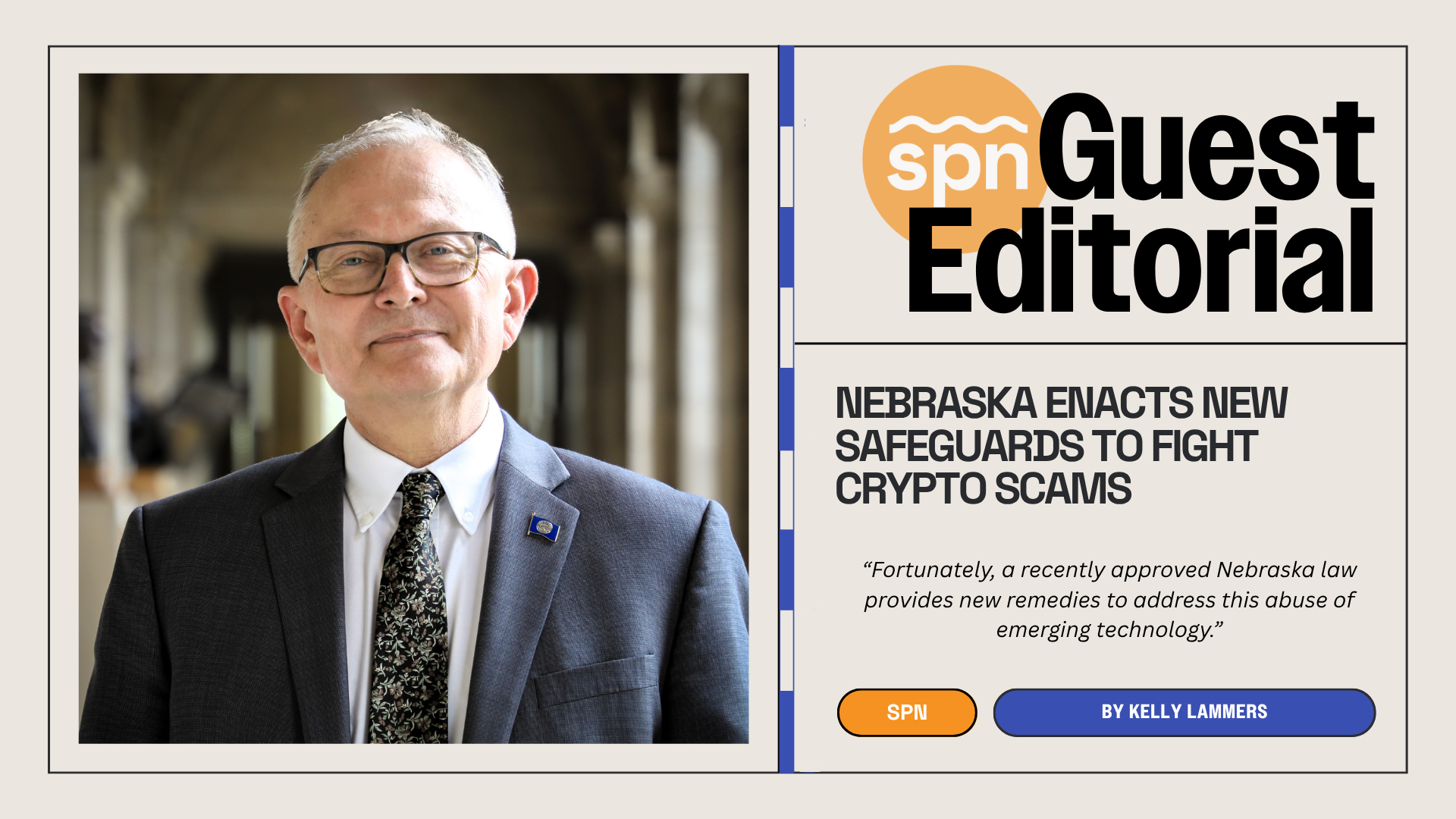The first-ever Hustle Conference, co-founded by Curt Drew and Eric Gautschi, aimed to support and inspire Midwest entrepreneurs. Hosted at Creighton University’s Heider School of Business, the conference drew participants from Nebraska and surrounding states to explore the landscape of entrepreneurship locally and beyond.
Keep reading for highlights from the event’s keynotes and fireside chats.
Growing access to capital
Lewis Schiff, chairman of Birthing of Giants: The Princeton Fellowship Program for Business and executive director of Moonshots and Moneymakers, addressed the favorable conditions for entrepreneurs in today’s market, including the growing access to capital.
“There are fewer companies than ever… and that’s because there are fewer people,” said Schiff.
Schiff shared the declining United States replacement rate, now at around 1.6, which is below the level needed for population stability.
“It means there’s fewer entrepreneurs…fewer companies,” explained Schiff. “Why is that good news? Because of the second megatrend, which is that there’s never been more money floating around.”
Schiff also mentions in his keynote, capitalism favors owners of capital over providers of labor. He shared data showing that over the past 2,000 years, owners of property have seen their wealth grow at a much faster rate than those who only provide labor.
Schiff discussed the relationship between capitalism and poverty levels over time. He stated that if you look back a couple hundred years, 90% of the world was living in poverty. However, Schiff said as capitalism has spread globally, the poverty rate has decreased and is around 10%.
Schiff positioned entrepreneurs as “poverty fighters,” suggesting that by building successful businesses, they are contributing to this broader trend of decreasing poverty levels.
Fireside chat with Nebraska entrepreneurs
A fireside chat introduced by Gautschi and Drew, included short interviews with founders—Willy Theisen of Godfather’s Pizza; Don Eckles of Scooter’s Coffee; Marcey Yates of Culxr House; and Paul Jarrett of Bulu. Each interview explored the founders’ experience scaling a business, and perspectives on resilience, persistence, and the challengers of entrepreneurship.
Theisen recounted the origin and growth of his business. Godfather’s Pizza scaled to 450 stores within three years of starting. “We just didn’t even know what we didn’t know,” said Theisen.
Yates spoke about his nonprofit focused on cultivating the arts and supporting aspiring entrepreneurs. He discussed the origins of Culxr House, which began as a shared workspace for artists and entrepreneurs. Yates highlighted the role of community and collaboration in fostering creativity and entrepreneurial success and the risk associated with it.
“Had I known then what I know now, I may have [taken] less risks…” Yates said. “Sometimes when you don’t know what you are doing, you can kind of do the most, right? Because it’s really nothing to lose.”
Profits and purpose
Jay Wilkinson, founder of the Do More Good® Movement, stated “Capitalism is the answer not the problem.” He presented his keynote on the “Do More Good” movement, advocating for businesses that prioritize purpose alongside profit.
He introduced the concept of “evergreen” companies”—businesses focused on long-term impact rather than immediate gains, citing Patagonia as an example.
Wilkinson emphasized that purpose can drive profitability, stating, “Profit because of purpose, not purpose over profit.”
He described the movement as a transformative shift, adding, “We are on the precipice of the biggest shift in business that has ever happened, including the computer age.”
Panel on local entrepreneurship
A panel featuring Trevon Brooks, Sen. Megan Hunt, Buey Ray Tut and Alejandra Jimenez examined Nebraska’s entrepreneurial ecosystem, discussing its strengths and challenges.
“Something that draws people to this place is the potential we have to keep growing and to fill a lot of needs that we have not seen in our community yet,” said Hunt.
Accessing capital and resources is one of the biggest challenges that we see in Nebraska, said Jimenez.
Hunt added, “We really hit a ceiling in Nebraska…with the capital we have access to.”
While Brooks highlighted the region’s potential saying, “We have some amazing entrepreneurs and innovators… doing cool things every day.”
Community support was essential to fostering local entrepreneurship in Nebraska, stating ways to help pass laws to support business like testifying for bills in the legislature and more, said Hunt.
Resilience is key
The conference concluded with a keynote by entrepreneur Franziska Iseli,, who spoke about courage and resilience drawing from her motorcycle journey following the Silk Road.
Iseli discussed the importance of detachment in overcoming challenges in people’s business endeavors, “all suffering comes from attachment.”
Iseli encouraged attendees to embrace discomfort as a way to build resilience, to take action and practice courage daily, emphasizing the significance of community support.
“The equation of the journey is more important than the destination,”said Iseli.” It’s the people that we share our journey with that make it even more meaningful.”

